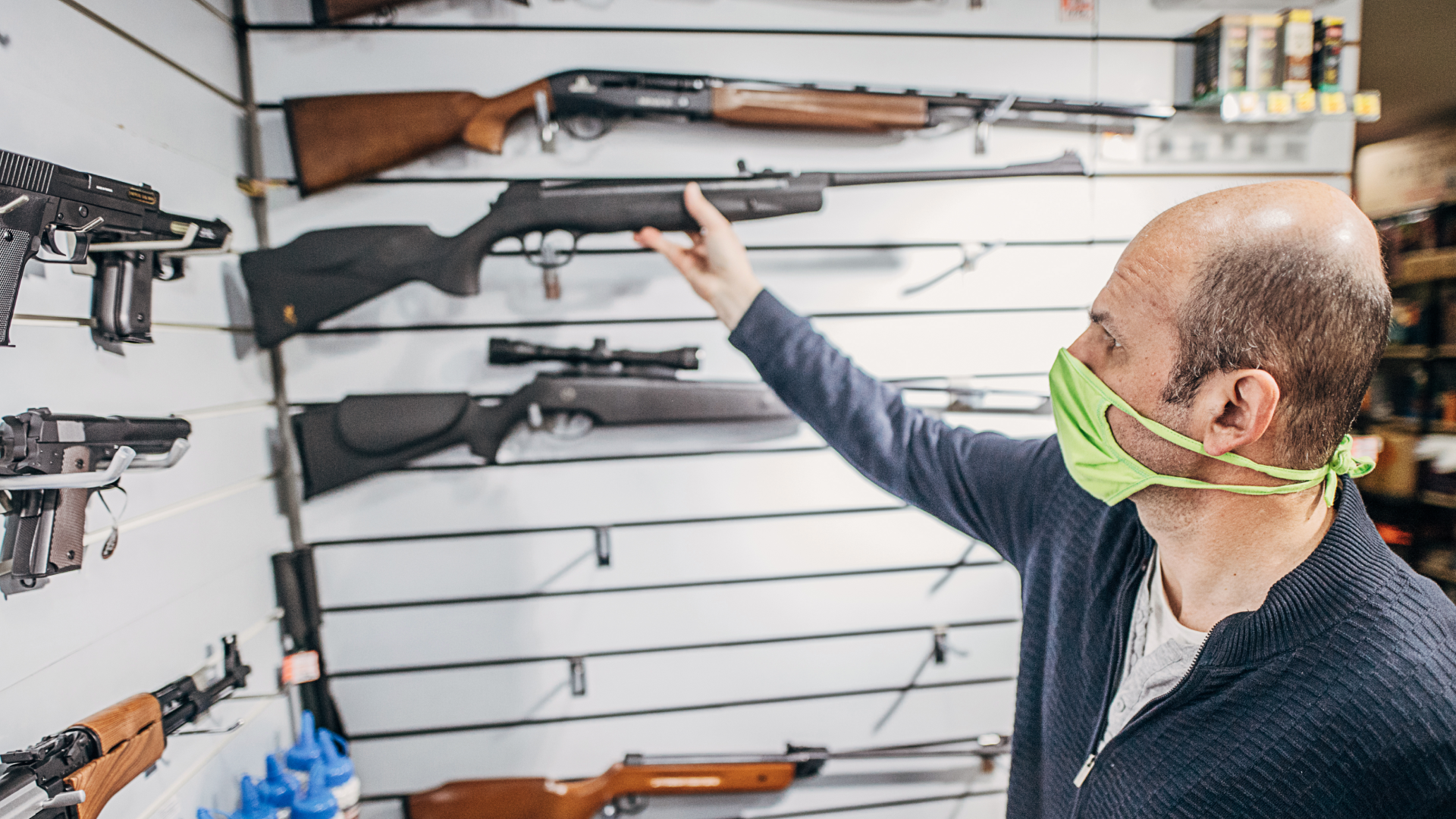There were 48,953 deaths from firearms in the U.S. in 2021, the highest number recorded since the Centers for Disease Control and Prevention started tracking it in 1981. [1] One way some lawmakers have attempted to combat gun violence is by requiring gun owners to carry insurance. The City of San Jose in January passed an ordinance requiring gun owners to obtain civil liability insurance and pay fees to support violence-reduction programs. [2] And in New Jersey, a bill that would require anyone who obtains a permit to carry a firearm to get liability insurance is making its way through the legislature.
Senate President Nick Scutari, a sponsor of the bill, says he expects the law, which also sets requirements for gun owners to undergo training and limits where they can carry handguns, to “help prevent gun violence.” [3]
The New Jersey bill would require anyone applying for a handgun permit to include proof of liability insurance coverage. It must cover financial losses “resulting from liability imposed by law for bodily injury, death, and property damage sustained by any person arising out of the ownership, maintenance, operation or use of a firearm carried in public.” It’s important to note that liability insurance typically excludes intentional acts, even taken in self-defense. The San Jose ordinance requiring gun owners to insure their weapons explicitly mentions the policy covers accidental use of a firearm. [4]
Why liability insurance could lower gun violence
Proponents of the policies say that requiring gun owners to have liability insurance creates an avenue of recourse for their potential victims, and a safety net for the owners themselves. For victims of accidental gun violence, they — or their families if they’re killed — have a source of compensation if they’re injured. And for gun owners, they’re protected from the financial cost of causing that injury, just as liability insurance would protect them if they accidentally hit someone with their car.
Insurance companies might also find ways to incentivize safer behavior from gun owners, in the same way they offer discounts to drivers who take defensive driving courses, especially as they gather more data on the risk of owning a gun.
“We have all sorts of incentives to drive safer, to install safety devices in our houses, and if you brought that into firearms, the hope is that insurers will price how people own guns and what training they have,” says Peter Kochenburger, a visiting professor at Southern University Law Center.
Why liability insurance probably won’t lower gun violence
In practice, there are reasons to doubt how much liability insurance can reduce gun violence. One is that the liability limits in the New Jersey bill are too low, says Adam Scales, a professor of law at Rutgers Law School in Camden. The minimum limits for the liability coverage are $100,000 of bodily injury or death per person, $300,000 of bodily injury or death per incident, and $25,000 of property damage per incident. For comparison’s sake, those are similar to the limits recommended for auto insurance liability coverage. A 2017 study estimated that the average emergency department and inpatient cost of a gun injury was more than $100,000 per patient per year, and that doesn't include the long-term burden of managing the injury. [5]
“If you wanted to protect people against the risk of getting shot, we’re talking about a $1 million policy at least,” Scales says.
For an insurance company, deciding how much to charge for gun liability coverage could be difficult. America has extremely high levels of gun violence. But it also has a lot of guns. Because of that, the risk of death or injury per gun is low compared to other insured risks, like car crashes. One estimate places the number of guns in the country at 393 million, [6] while there are about 115,000 non-fatal firearm injuries and 39,707 deaths every year. [7] That’s a much lower rate than vehicles: There are 276 million registered in the United States, while there are nearly 5 million injuries in motor vehicle crashes per year. [8] And because liability insurance doesn’t cover intentional acts like homicide or suicide — the cause of the vast majority of gun injuries and deaths — gun insurance would come into play only in extremely rare circumstances, Scales says.
“You can put this requirement in place and for a variety of reasons, it would very rarely result in compensation for someone who’s injured and frankly, it would almost never result in full compensation for someone who’s seriously injured,” he says.
Many gun owners are already covered
One other issue with requiring liability insurance for guns: Many gun owners will already be covered by the liability insurance attached to their home or renters insurance policies. Liability coverage doesn’t just protect you from events on your property or in your apartment — it follows you around, covering you if you negligently injure or kill someone whether it involves a gun or not.
“Rarely is there an exclusion specific to guns,” Kochenburger says.
But standard policies exclude “expected or intended injury,” so intentional shootings, including self defense in many instances, won’t be covered.
While policymakers are looking for creative ways to advance gun safety laws, especially after the Supreme Court’s decision to strike down a New York gun law called many gun restrictions into question, it’s not clear that insurance is the right tool for the job, Scales says.
“I am confident that this will not work the way gun control proponents imagine,” he says.
Image: Hirurg / Getty Images

